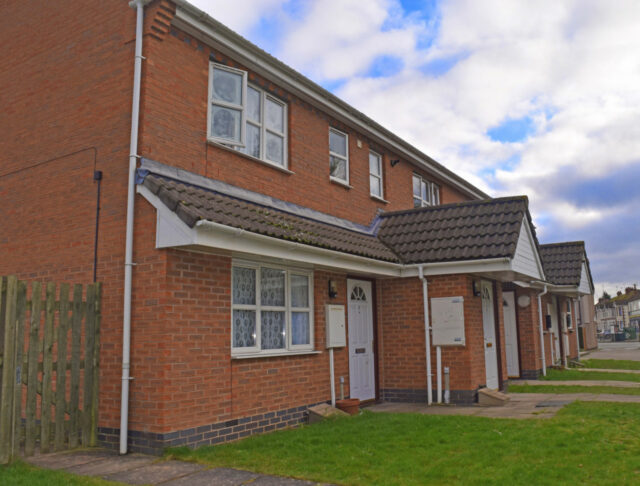‘DJ’, the charismatic Senior Fund Manager of CBRE GI’s Affordable Housing Fund, tells us “the investment case for affordable housing has never been stronger.” European investors are being attracted by the security of income.

CV
- Senior Fund Manager CBRE Global Investors, 2007-present
- Senior Investment manager English Partnerships, 2005-7
- Cass Business School, MSC Real Estate, 2005-7
- University College London, MSC Urban Economics/real estate, 2001-4
- Centre for Environmental Planning and Technology University, India, Diploma in Architecture, 1995-2001

The charismatic Dhananjai, known as DJ in London’s real estate community, is Senior Fund Manager of CBRE GI’s Affordable Housing Fund (AHF). He invests in housing stock in the UK, focusing on social and affordable rented housing.
AHF aims to have “a significant social impact” using a shared ownership model for affordable housing, together with other specialist tenures such as key worker housing, and homeless hostels.
DJ started the fund in 2017 and by 2019 had raised £250m, mainly from UK pension funds, along with Big Society Capital.
But now he says “European investors have never been more interested.” There is strong interest, particularly from insurance companies.
DJ says this reflects “the steady income stream we can deliver for our clients.” Insurance companies are now the largest client segment in AHF, which currently has £370mn under management.
A need for private sector investment
Part of the attraction is no doubt the extraordinary demand for housing in the UK. According to ONS data, over the past ten years, the number of UK households has increased by almost 10%, with an average of 240,000 new households expected to form each year over the coming twenty years.
This is in addition to pre-existing pent-up demand, created by historical supply shortfall. Estimates of the total backlog of housing needed range from 2 million to 4 million new homes.
In affordable housing, the situation is even direr, DJ says.
“Increasing levels of poverty are likely to make the UK housing market unaffordable for a generation.”
This is exacerbated by the UK’s complex planning regulations and continued population growth, which is the fastest in Europe. “New build is barely 30% of what is required at present – supply is becoming shorter and shorter.”
DJ points out government-backed registered providers simply do not have enough capital to meet these needs. In his opinion, the UK government’s tougher environmental regulations and commitment to “making the polluter pay” is inadvertently making matters worse.
Public capital is being diverted away from new build to ‘greening’ the existing housing stock. DJ believes private capital must come in. “This has created a need for private sector investment to fill the gap…(and) to provide a long-term benefit to society.”
A compelling investment case
DJ is convinced this demand/supply imbalance is worsening post-Covid. “In affordable housing, we have not seen any fall in valuations from Covid.”
Indeed, there is an increase in demand for shared ownership housing. “Covid has hurt those in the low-income brackets the most, and there is an even greater demand to provide housing.”
From an investor perspective, this demand backdrop is positive enough, but DJ believes there are other elements to a compelling investment case for European investors. This is a long-term fund “we buy to hold,” he says, pointing out that “ the security of income is good.”
Assets are let to registered providers on 20-year leases. Tenant turnover is significantly lower than in the private rental market. “There is an intergenerational element to occupation,” DJ says, which means families often occupy the same affordable housing for decades.
Increased environmental focus makes this even more important.
“As priorities shift ever further towards carbon neutrality, residential projects that focus on offering energy-negative homes today provide investors with future-proofed investments for tomorrow.”
In addition, future income streams are much more predictable than in other asset classes. Rental increases are determined by a formula, not by market whim.
They are typically index-linked and reviewed every five years. For the next five years, rental growth is set at CPI plus one per cent.
Predictable valuations
When pressed on the political risk to this, DJ says politicians have learnt the hard way not to be tempted to push this downwards. “They have learnt over the years that if you cut rental growth then you end up not attracting private capital. It becomes self-defeating: supply shortages are exacerbated.”
This in turn means that capital valuations (which directly reflect income growth) are far more predictable, and insulated from general market downturns.
DJ suggests that while the correlation to GDP growth is 0.7 for real estate generally, it is less than 0.1 for affordable housing. This counter-cyclicality is particularly attractive for investors.
Measuring the impact
But while affordable housing may make a compelling investment case, the focus remains squarely on impact, the fund manager said. The target return is 6% but to some extent, the investment return is a secondary consideration.
“From the very creation of the fund we were focused on the social impact.” Consequently measuring impact has been a top priority for the fund.
CBRE GI understand that “to focus efforts where the most impact can be made, it is crucial that investors measure the impact their investment is having,” DJ said
They therefore partnered with The Good Economy, a social advisory firm, and created a social impact framework. “This has five elements which guide our decision-making process.”
Every investment is assessed for how it addresses a social need, affordability, sustainability, services in the community in which it is located and, finally, overall supply.
“We have signed up to transparency and best practice and we are happy for this framework to be used across the industry.”
Thanks to this framework, CBRE GI believes it has evidence of “the positive impact of good affordable housing on citizens’ health, wellbeing and quality of life.”
Recent deals
Two recent deals underscore that approach. AHF’s Abbey Place, next to the new Abbeywood Crossrail station in South East London, will be 72% affordable housing when it’s completed in 2023.
And the fund is purchasing fifty affordable housing units in the new ‘Aspire’ development being built in Slough (west of London) in 2022. DJ said the deal was “in line with our fund objectives of bringing forward additional housing and contributing towards social impact.”






